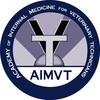What is a Mentor?
A mentor is someone who takes a special interest in helping another person develop into a successful professional. In general, an effective mentoring relationship is characterized by mutual respect, trust, understanding, and empathy. Good mentors are able to share life experiences and wisdom, as well as technical expertise. They are good listeners, good observers, and good problem-solvers. They make an effort to know, accept, and respect the goals and interests of a candidate. In the end, they establish an environment in which the candidate's accomplishment is limited only by the extent of his or her talent. AIMVT mentors are members of AIMVT in good standing and hold a VTS in Internal Medicine. Charter members may be utilized as mentors if no other mentors in the specialty are available. Mentors cannot receive financial compensation for their time.
Are there established mentoring styles? Which style is best?
There is no single formula for good mentoring; mentoring styles and activities are as varied as human relationships. Different candidates will require different amounts and kinds of attention, advice, information, and encouragement. Some candidates will feel comfortable approaching their mentors; others will be shy, intimidated, or reluctant to seek help. A good mentor is approachable and available. Often candidates will not know what questions to ask, what information they need, or what their options are. A good mentor can lessen such confusion by getting to know candidates and being familiar with the kinds of suggestions and information that can be useful. That being said, mentoring relationships must be driven by the mentee who must ask for the help they need.
I'm a member of AIMVT and would like to be a mentor - how much time is involved?
Effective mentoring need not always require large amounts of time. An experienced, perceptive mentor can provide great help in just a few minutes by making the right suggestion or asking the right question. The nature of a mentoring relationship varies with the level and activities of both candidate (mentee) and mentor. In general, however, each relationship must be based on a common goal: to advance the educational and personal growth of the candidate. You as mentor can also benefit enormously. There is a tremendous amount of satisfaction to be had by helping someone else succeed. The candidate’s success will be much more satisfying when they realize that THEY did the work. A mentor’s job is to show them HOW to do the work, not to do it for them!
How do I request an AIMVT mentor?
If you are currently collecting cases for your application, the Academy can assign you an AIMVT mentor. Please note that the number of mentors are limited, and a mentor pairing is not guaranteed. AIMVT prioritizes assigning mentors to those re-applying to the Academy. To expand the availability of mentors, you may be asked to work with a mentor that is a member of AIMVT who is not in your specific specialty and who can assist you with the application process.
Please contact the Mentor Committee at [email protected] and they will work to pair you with a mentor.
Please contact the Mentor Committee at [email protected] and they will work to pair you with a mentor.
Maximizing Your Relationship
Check out our webinar on how to get the most out of your mentoring relationship
